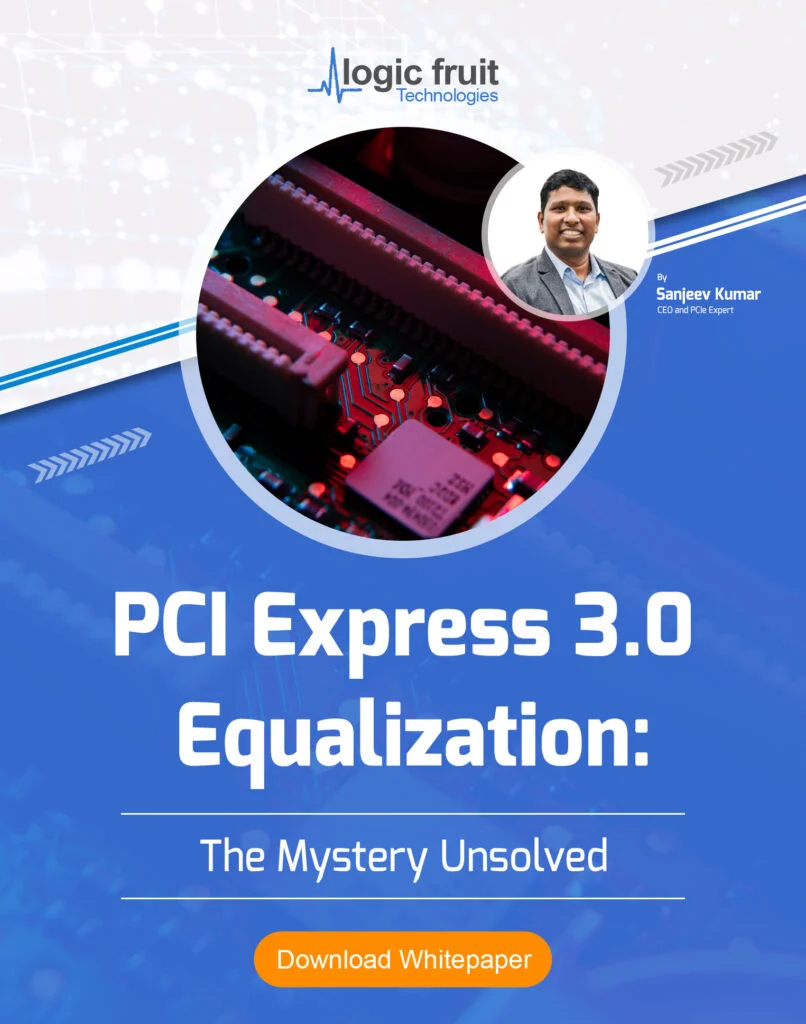FPGA Insights has engaged in an exclusive interview with Deepeshwar Kumar, FPGA Engineer at Logic Fruit Technologies
Q1) Can you provide an overview of your organization and the services/products it offers?
I am proud to be part of Logic Fruit Technology, where we are dedicated to pushing the boundaries of FPGA technology. Logic Fruit Technology is a leading provider of cutting-edge FPGA solutions and services. We specialize in FPGA design and development, offering a wide range of services, including RTL design, verification, synthesis, and implementation. Our expertise extends across various FPGA platforms, including Xilinx and Intel (formerly Altera), and we cater to diverse industries such as telecommunications, aerospace, automotive, and more.
One of our key strengths is our ability to provide customized FPGA solutions tailored to our client’s specific needs. Whether it’s creating complex FPGA-based signal processing algorithms, designing high-speed data acquisition systems, or accelerating artificial intelligence workloads, Logic Fruit Technology excels in delivering FPGA solutions that optimize performance and power efficiency.
Our commitment to innovation drives us to stay at the forefront of FPGA technology, enabling us to tackle the most challenging projects and deliver exceptional results to our clients. We take pride in our collaborative approach, working closely with clients to understand their requirements and providing end-to-end FPGA solutions that address their unique challenges.
At Logic Fruit Technology, we believe in the transformative power of FPGA technology and are dedicated to harnessing its full potential to help our clients achieve their goals. We are excited about the future of FPGA technology and look forward to continued growth and innovation in this dynamic field.
Q2) Can you explain the benefits of using FPGAs over other types of processors?
FPGAs offer unparalleled flexibility and performance for specific applications. Unlike traditional processors, FPGAs can be customized for a particular task, which results in significantly higher processing speeds and lower power consumption. They excel in tasks like signal processing, real-time control, and hardware acceleration, making them ideal for applications such as data centers, telecommunications, and edge computing.
Q3) What are the most significant trends observed in the FPGA industry over the past year? How will these trends shape the industry’s future?
In the past year, we’ve observed growing interest in AI/ML acceleration using FPGAs, increased adoption in 5G infrastructure, and a strong focus on FPGA security. The industry has also witnessed the emergence of more user-friendly development tools, making FPGA programming more accessible to a broader audience. These trends are likely to continue shaping the industry, fostering innovation and growth.
Q4) How do you see FPGA development evolving to meet the demands of modern applications and complex workloads?
FPGA development is evolving with a focus on ease of use and integration. High-level synthesis tools, IP cores, and open-source FPGA frameworks are simplifying the development process. Additionally, FPGA vendors are offering cloud-based FPGA services, allowing for scalable and efficient deployment of FPGA-based solutions.
Q5) Key drivers behind the increasing adoption of FPGAs in various applications and industries?
FPGA adoption is being driven by the need for high-performance, low-latency, and energy-efficient solutions. Applications like AI/ML, 5G, autonomous vehicles, and IoT benefit significantly from FPGA acceleration due to their ability to meet these demands.
Q6) Sectors that stand to benefit the most from FPGA integration, and why?
Industries such as finance (for algorithmic trading and risk analysis), healthcare (for medical imaging and genomics), and defense (for secure communications and radar processing) are among those benefiting most from FPGA integration. These sectors demand high performance, reliability, and security—areas where FPGAs shine.
Q7) The role of FPGAs in accelerating AI applications and advancements expected in the near future
FPGAs are instrumental in accelerating AI applications due to their parallel processing capabilities. They can be customized to execute specific AI workloads efficiently, resulting in faster inference times and reduced power consumption. Expect further advancements in FPGA-based AI acceleration, including improved support for emerging AI models and hardware.
Q8) Ensuring the security and integrity of FPGA designs, especially in sensitive applications like finance and defense.
Securing FPGA designs is critical, especially in sensitive applications. Best practices include using secure boot mechanisms, encrypting bitstreams, and implementing runtime monitoring for intrusion detection. Collaboration between FPGA vendors and cybersecurity experts will play a pivotal role in enhancing FPGA security.
Q9) Advice for students and professionals interested in pursuing a career in FPGA development to stay updated with the latest trends and technologies.
Stay updated with the latest FPGA technologies and tools. Engage in FPGA-related online communities and forums, take courses on FPGA design and programming, and work on practical projects to gain hands-on experience. Networking with experienced FPGA professionals can also provide valuable insights and opportunities.












